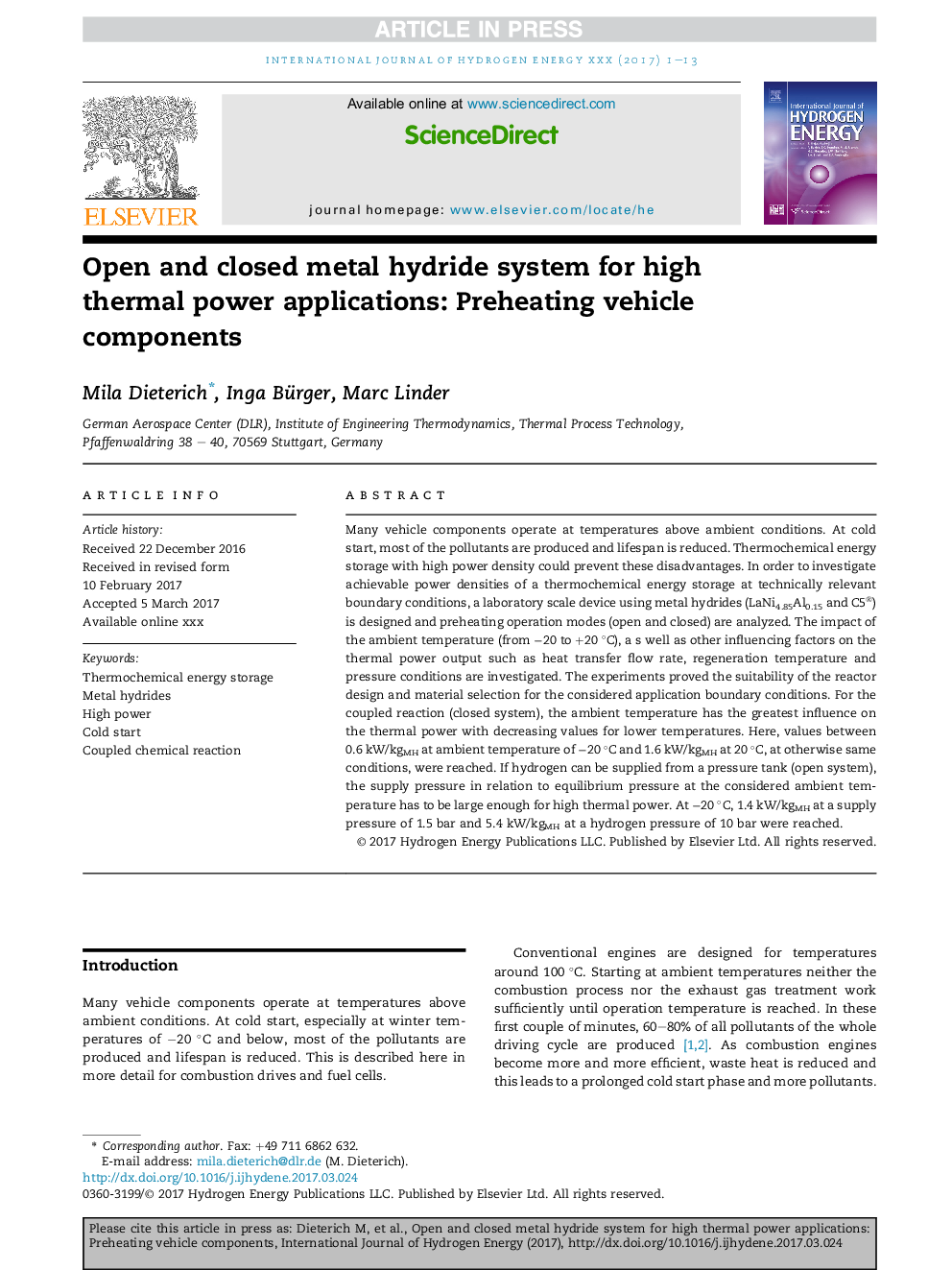| Article ID | Journal | Published Year | Pages | File Type |
|---|---|---|---|---|
| 5145750 | International Journal of Hydrogen Energy | 2017 | 13 Pages |
Abstract
Many vehicle components operate at temperatures above ambient conditions. At cold start, most of the pollutants are produced and lifespan is reduced. Thermochemical energy storage with high power density could prevent these disadvantages. In order to investigate achievable power densities of a thermochemical energy storage at technically relevant boundary conditions, a laboratory scale device using metal hydrides (LaNi4.85Al0.15 and C5®) is designed and preheating operation modes (open and closed) are analyzed. The impact of the ambient temperature (from â20 to +20 °C), a s well as other influencing factors on the thermal power output such as heat transfer flow rate, regeneration temperature and pressure conditions are investigated. The experiments proved the suitability of the reactor design and material selection for the considered application boundary conditions. For the coupled reaction (closed system), the ambient temperature has the greatest influence on the thermal power with decreasing values for lower temperatures. Here, values between 0.6 kW/kgMH at ambient temperature of â20 °C and 1.6 kW/kgMH at 20 °C, at otherwise same conditions, were reached. If hydrogen can be supplied from a pressure tank (open system), the supply pressure in relation to equilibrium pressure at the considered ambient temperature has to be large enough for high thermal power. At â20 °C, 1.4 kW/kgMH at a supply pressure of 1.5 bar and 5.4 kW/kgMH at a hydrogen pressure of 10 bar were reached.
Related Topics
Physical Sciences and Engineering
Chemistry
Electrochemistry
Authors
Mila Dieterich, Inga Bürger, Marc Linder,
